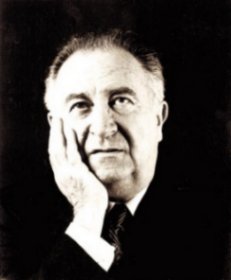José Albi facts for kids
Quick facts for kids
José Albi
|
|
|---|---|

Pseudonym "Diez Claves"
|
|
| Born |
José Albi
1922 |
| Died | 7 June 2010 |
| Nationality | Spanish |
| Known for | Poet, literary critic, and translator |
|
Notable work
|
Vida de un hombre El silencio de Dios Odisea 77 Elegía atlántica Bajo palabra de amor Elegías apasionadas Piedra viva |
| Movement | Surrealistic introversion |
| Awards | "premio Valencia de Literatura" 1957, 1977, 2002 "premio Gabriel Miró" 1958 "premio Miguel Ángel de Argumosa" 1978 |
José Albi Fita (also known as Josep Albi Fita in Valencian) was a famous Spanish poet, literary critic, and translator. He was born in 1922 and passed away on June 7, 2010. José Albi was the Honorary President of a group called the Asociación Valenciana de Escritores y Críticos Literarios (CLAVE). This group is for writers and literary critics in Valencia. Many people called him the "last of the post-Spanish Civil War poets."
Contents
Early Life and Education
José Albi Fita was born in Valencia in 1922. He grew up in a town called Sueca. He studied law at the Universitat de València. There, he met another important writer, Joan Fuster. He also studied at the Universidad de Deusto.
Later, Albi earned a special degree in philosophy and letters from the Universidad de Zaragoza. He then got a doctorate from the Universidad Complutense de Madrid. Throughout his life, José Albi stayed in touch with other well-known writers like Miguel Hernández, Dámaso Alonso, and Gabriel Celaya.
Becoming a Writer
In the 1950s, José Albi started writing poetry seriously. He was inspired after reading a book called Marinero en tierra by Rafael Alberti. Albi also started his own literary journal called Cuadernos literarios. His writings about books and literature, known as literary critique, appeared in this journal. He also wrote for another review he started in 1954 called Verbo y Cuadernos literarios.
José Albi sometimes wrote under a special name, a pseudonym, which was "Diez Claves." This means "Ten Keys." He was known for using surrealistic ideas in his writing. Surrealism is an art style that uses dream-like images and ideas. Albi also worked with Joan Fuster to collect and publish the works of other writers like Ángel Crespo and Paul Éluard. He also helped share the work of Spanish surrealist artists.
Awards and Recognition
José Albi was a very popular poet. Both critics and the general public liked his work. He received many awards for his writing.
In 1957, he won his first big award, the "premio Valencia de Literatura" (Valencia Literature Prize). He won it for his book Vida de un hombre. The next year, in 1958, he won the "premio Gabriel Miró" (Gabriel Miró Award) for his work El silencio de Dios.
Albi won the "premio Valencia" again in 1977 for his book Odisea 77. In 1978, he received the "premio Miguel Ángel de Argumosa" (Miguel Ángel de Argumosa Prize) for Elegía atlántica.
His success continued, and in 2002, José Albi received his third "premio Valencia de Literatura." He also became the honorary president of the Asociación Valenciana de Escritores y Críticos Literarios (CLAVE). This shows how respected he was in the world of Spanish literature.
Later Life and Passing
José Albi always cared deeply about Oliva, Spain, which he considered his homeland. He also loved the Sea side resort of Xàbia.
José Albi passed away at his home in Jávea on June 7, 2010. He left behind a rich collection of poetry and literary works.
See also
 In Spanish: José Albi para niños
In Spanish: José Albi para niños
 | Jewel Prestage |
 | Ella Baker |
 | Fannie Lou Hamer |

